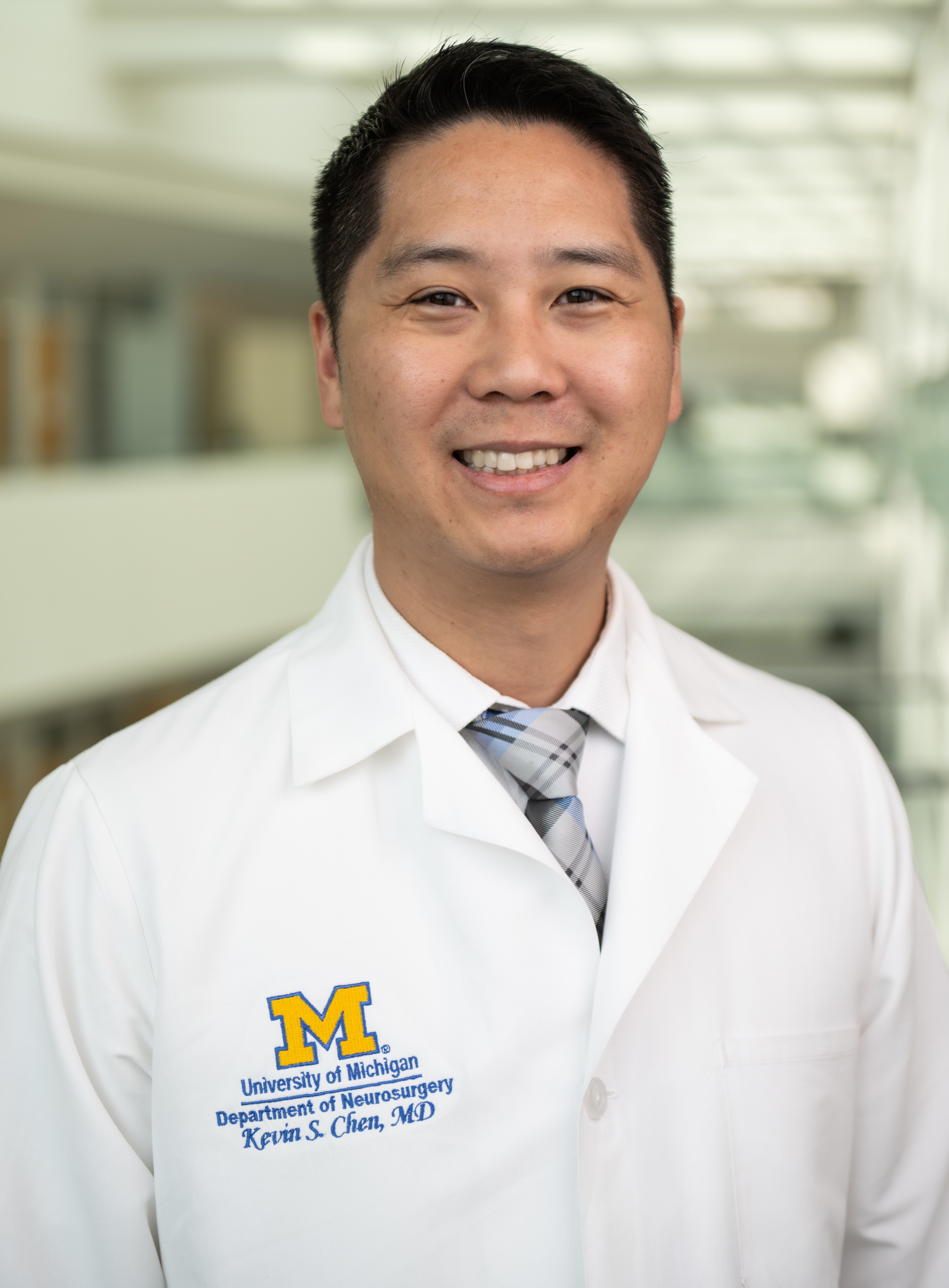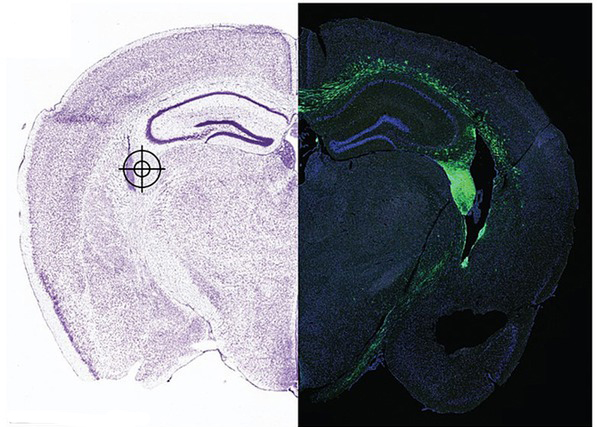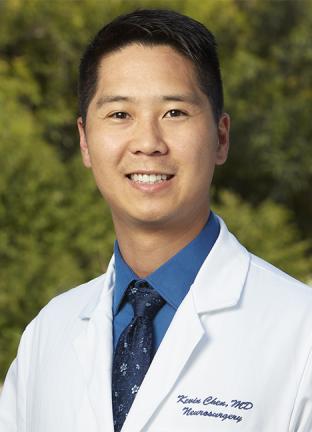One in nine Americans (10.8%) age 65 or older has Alzheimer’s dementia. In Michigan, Alzheimer’s is expected to increase by almost 30% between 2020 and 2025. Right now, there are no effective treatments for the disease that slowly destroys memory and thinking skills.
Eva Feldman, M.D., Ph.D. and the NeuroNetwork for Emerging Therapies believe that stem cell therapy is extremely promising to not only potentially treat both Alzheimer’s disease and ALS but also better understand them as well.

Kevin Chen, MD, Frances and Kenneth Eisenberg Emerging Scholar and Clinical Assistant Professor of Neurology and Neurosurgery, leads the team in this work. Recently, they published exciting research in the Frontiers of Aging Neuroscience.
In this study, Dr. Chen looked at the effects of stem cell therapy on spatial memory, gene expression and amyloid plaques. It is debated whether the latter is a hallmark cause or marker of Alzheimer’s disease.
Transplanting human neural stem cells into the hippocampus (part of the brain) in pre-clinical models of Alzheimer’s disease produced quite exciting findings.
First, the therapy restored learning and memory. Secondly, diseased microglia—support cells for nerves in the central nervous system—associated with Alzheimer’s disease, were restored to normal.

“This work moves us one step closer to identifying how stem cells can help in neurodegenerative disease,” explains Dr. Chen. “Many current therapies are focused on decreasing amyloid plaque. Our work suggests that restoring normal microglial function is the key to a healthy brain.”
What’s next? Dr. Chen will delve deeper into these findings.
He is also very interested in studying metabolic pathways (a specialty of the NeuroNetwork), how they affect stem cells or vice versa, and how this all plays out in both Alzheimer’s disease and ALS.
Other authors on "Human neural stem cells restore spatial memory in a transgenic Alzheimer's disease mouse model by an immunomodulating mechanism" include Mohamed Noureldein, Ph.D., Lisa McGinley, Ph.D., John Hayes, Diana Rigan, Jacquelin Kwentus, Shayna Mason, Faye Mendelson, Masha Savelieff and Eva Feldman, M.D., Ph.D.
Supported by: National Institutes of Health (5U01AG057562–02, to EF and LM), The Handleman Emerging Scholar Program (LM and KC), The NeuroNetwork for Emerging Therapies (EF), The Robert E. Nederlander Sr. Program for Alzheimer’s Research (EF), and The Sinai Medical Staff Foundation (EF). This work was also supported by an Alzheimer’s Association Grant (AACSF-22-970586) (KC).

